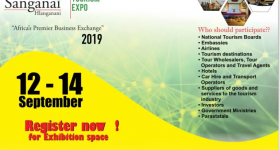With a population of more than 1 million, the port city of Maputo is one of the world’s most expensive cities to live in. It can also be one of the most beautiful to behold.
Maputo shares the same name with the province and is situated along the Indian Ocean to the eastern side, bordering with Gaza Province in the north.
In the south, the city borders South Africa’s KwaZulu-Natal province while to the west and north-west, it shares borders with the tiny kingdom of Swaziland, and yet another South African province, Mpumalanga.
Talking of expensive, Sommerschield deserves mention.
Probably the plushest suburb of Maputo, where celebrities like athletics star Maria Mutola live, a two-bedroomed house with pool and security would set you back about $3 000 to $7 000 a month.
Also plush is the suburb of Polana Caniço.
In the poor suburbs of Costa do Sol, Hoyo Hoy and Mozaika, near the main bus terminus, life is comparatively cheaper; renting a room could cost up to $250 a month – a scenario that has caused a high crime rate.
This is where you find overcrowding and poor service delivery. There are usually traffic jams, uncollected garbage, and street-kids almost everywhere.
Some facilities still bear the marks of the civil war that ended decades ago and appear neglected.
However, by the seaside, city life is fascinating and exciting, especially for the young and single.
When it comes to hospitality, Maputo is one of the best cities in which to spend your income.
The city boasts a rich blend of foodstuffs ranging from fresh seafoods with spices, seasonal ingredients and mouth-watering flavours.
Just like the rest of the country, Maputo is famous for its rich blend of cultures, but is pre-dominantly Portuguese by virtue of the country being a Portuguese colony up to 1975 when theMozambique Liberation Front (Frelimo) overthrew the settler regime.
There is a mix of African cultures as well as Indian.
As in many African seaports, or coastal areas, Maputo has excellent restaurants and bars.
Most operate for long hours while some do not close at all.
When one visits Maputo on a Friday, clubs such as Coconuts Live, Discoteca Copacabana and Havana Bar are popular places for both the rich and middle class, including tourists who might enjoy clubbing.
Finding excellent restaurants in Maputo is not too much of a task thanks to Southern Sun Maputo restaurants and bars.
Joacquim Maxakane, a local fish and crab trader in the high-density suburbs of Costa do Sol, has mixed feelings about the city.
Maputo is famous for its rich blend of cultures, but is mostly Portuguese by virtue of it being a Portuguese colony up until 1975
“I love Maputo for its blend of cultures of Portuguese, African and Indian but I hate it for being expensive,” he said.
For Maxakane and those with pockets not as deep, there is traditional beer commonly known as phombe.
It is cheaper and normally drunk in the high-density suburbs.
It was banned recently following the deaths of several people after suspected poisoning, but it can still be bought on the black market.
Maputo boasts celebrities of the calibre of former Olympic female gold medalist Mutola, commonly known as “The Maputo Express”, football greats such as Manuel José Luís Bucuane, also known as Tico-Tico, and South African-based Elias Gaspar Pelembe.
The now retired Tico-Tico captained the Mozambique soccer national team while playing for top South African Premiership sides Orlando Pirates, Jomo Cosmos, SuperSport and Maritzburg United.
He is the country’s most capped player having scored a record 108 goals.
Pelembe now plies his trade at South African log leaders Bidvest Wits.
While it boasts such celebrities, it seems odd that none of the presidents who have ruled Mozambique – Eduardo Mondlane (born in Gaza), Samora Machel (Chilembene), Joaquim Chissano (Chibuto), Armando Guebuza (Murrupula ) and Filipe Jacinto Nyusi (Cabo Delgado) – were born in Maputo.
Although not born in Maputo, the city managed to absorb or invent great musicians such as Humberto Carlos “Wazimbo” and Marisa dos Reis Nunes, who is Portuguese-Mozambican nationality, born to a Portuguese father and a mother of partial African heritage.
“This is how fun Maputo is. It has its own heroes and celebrities, but the bottom line is that we all find each other.
“Although none of the presidents or heads of state were born in this city, we are very proud of them because of the unity they preached among the people of Maputo, and Mozambique at large,” said Tsakisi Baloyi, a bus driver.
Most Maputo dwellers enjoy music called Marrabenta, which is widely believed to be an invocation type of music for the ancestral spirits.
The music is captivating; it will get you off your seat and onto the dance floor.
It is also Mozambique’s distinctive national music; an energetic mix of local dance rhythms and folk music from Portugal.
Apart from Marrabenta, Maputo has its own variety of music, ranging from timbila orchestras to the salsa-inflected groove.
This is the kind of music derived from oil-can guitars through hip-hop to the phenomenon of Maputo jazz-fusion.
Weekends can be fun for sports followers.
Teams from the city are Ferroviario Maputo, Liga Desportivo de Maputo, Liga Desportivo de Muculmana and Costa del Sol who compete in the Mcel-sponsored Mozambique Football League. – CAJ News















